
Will satellites save agriculture?
“How can we feed 10 billion people in 2050 with limited natural resources? To address this challenge, agritech start-ups are capitalising on the latest research findings to offer disruptive innovations and provide more efficient and environmentally friendly solutions” . This is how agritech is presented by BPI France, the French public investment bank. Once again, we see the famous promise to feed the world. To achieve this goal, we need to innovate, invest, digitise, robotise…
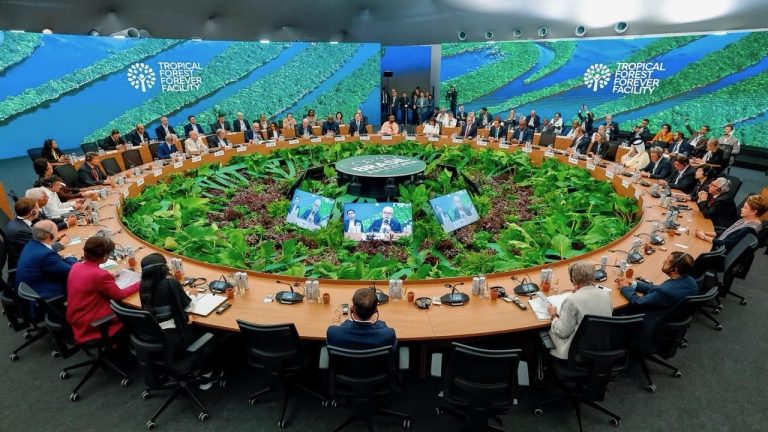
GMOs on the agenda at COP 30
At a time when countries are meeting in Belém, Brazil, to discuss the tools needed to combat climate change, Inf’OGM wishes to shed light on the role of biotechnology in these negotiations. Biotechnology companies are making several promises: GMOs will help combat world hunger and climate change.
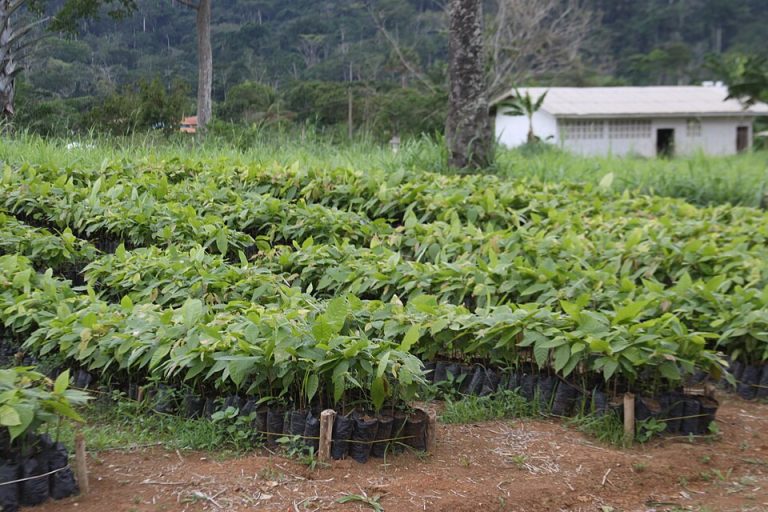
Soon genetically modified cocoa?
On August 6, 2025, the agri-food group Mars acquired a license to use CRISPR tools from the biotech company Pairwise with the aim of developing genetically modified cocoa trees. If this partnership between the biotech and agri-food worlds is worth looking into, it is because it concerns the world leader in chocolate products, which has been interested in the issue for several years now.

“Animal proteins” without animals
Animal proteins without animalsMilk proteins without cows, fish without fish, meat without animals and even egg proteins without eggs or chickens: welcome to the realm of “precision fermentation” for our future food. Three start-ups in the sector have obtained approval for their milk-free milk proteins from the US health authorities, enabling them to sell them to food manufacturers.The industry and certain institutions are presenting these innovations as a step forward in reducing the carbon impact of livestock farming and meeting the food needs of human populations. Above all, it is a promising market: these “advances” are already attracting investors.

When algorithms decide on the genetic modification of living organisms
For many years now, multinationals have been collecting an increasing amount of genetic, proteic sequences and epigenetic informations. They are reducing living organisms to data compiled in digital databases. Using “artificial intelligence” algorithms, they claim to have the tools to determine which genetic modifications will produce a given new characteristic. In a society where genetic modification techniques and patents are intimately linked, these algorithms will above all accelerate the claim to own living organisms.

“Biotech Act” 2025: high-tech against farmers?
In 2025, the European Union is expected to adopt a “biotech act” aimed, among other things, at modernising agriculture through new technologies. At the same time, public policies, in particular the Common Agricultural Policy (CAP), are guiding farmers towards ever more expensive and sophisticated mechanisation. As a result, a “high-tech” and soil-less agricultural model is taking shape in Europe, with the risk of increasing farmers’ indebtedness and marginalising small-scale farming.

AI creates new legal challenges in the field of patentability
“Artificial intelligence” (AI) is used to extract and restructure information from raw or unstructured data. Companies are using it to identify phenotypic traits associated with genetic sequences. Referring to a recent patent application by the company Inari, the German NGO Testbiotech points out the risks associated with the combination of new genomic modification techniques (NGT) and AI. It condemns the possible abuses of patentability and the need for robust GMO regulations. However, Inari has already filed other similar applications, which raises questions about the legal impact of such rights and their adaptation to AI-driven technologies.

GMO algae: a future raw material for industry
The algae that live in rivers and the sea have been the focus of a great deal of attention in recent years. Whether micro, macro, green, brown, red… they are currently at the heart of an industrial development project for which the European Commission is active. These GMO algae could be deregulated if the European Commission’s July 2023 proposal were to be approved, as they will undergo genetic modification to be transformed into production facilities for pharmaceuticals, cosmetics, food and agrofuels. This article is a first dive into a world that has gone unnoticed until now.
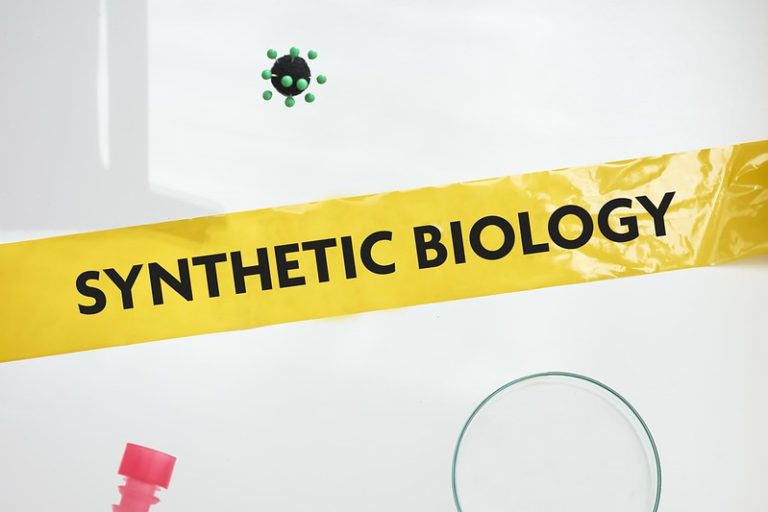
Synthetic Biology, talks are involving GMOs
For the past fifteen years, governments have been discussing “synthetic biology” on an international level. If to date, an “operational” definition exists, the outlines of this field remain hard to draw. Are talks of “synthetic biology” simply a change of semantics, or a genuinely new frontier of the biotechnology field? For the moment, examples of organisms or molecules obtained by synthetic biology are accumulating: unnatural proteins, GMO plants, GMO bacteria, recreated viruses, modification of living organisms directly in the environment, GMO insects, xenobacteria…
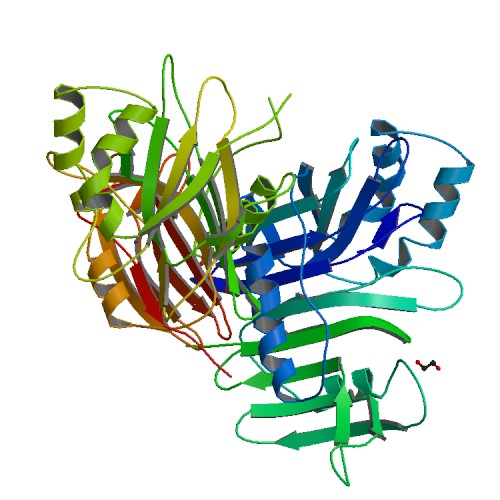
GMO viruses as laboratory tools to be spread in the environment ?
In a recent article, researchers detail several ongoing projects for the genetic modification of viruses. Some of these could be deliberately released into the environment. On February 7, 2024, the European Parliament asked the European Commission to study the potential deregulation of these GMO viruses. A general overview of those projects seems therefore necessary.
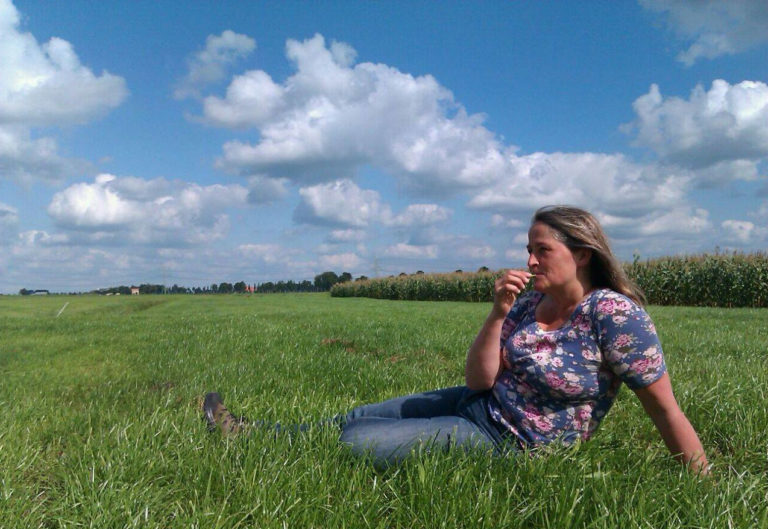
A Dutch seed company faces up to KWS patents
Inf’OGM interviewed a Dutch seed company that has developed a cold-resistant “organic” maize and that feels threatened by KWS patents. She tells us the story of her company Nordic Maize breeding, of her certified organic maize, of its likely future contamination by GMOs/NGTs…


